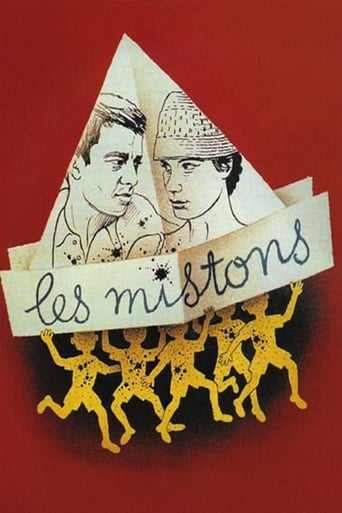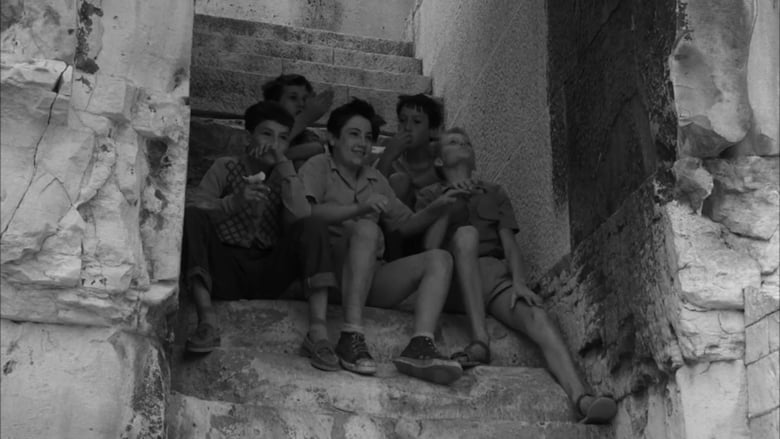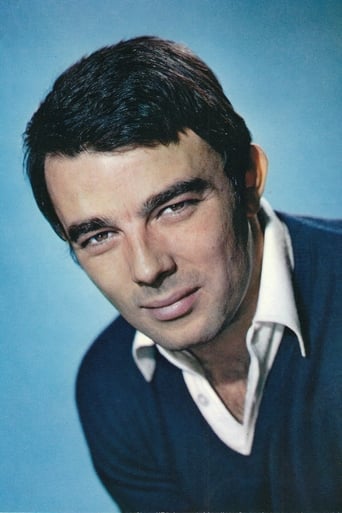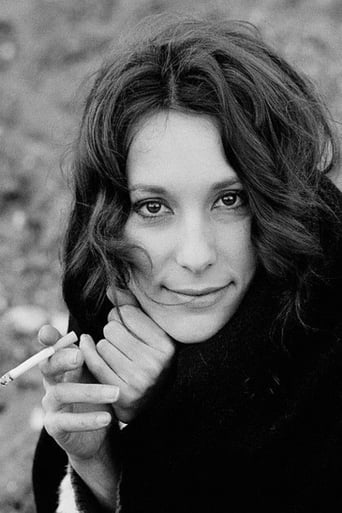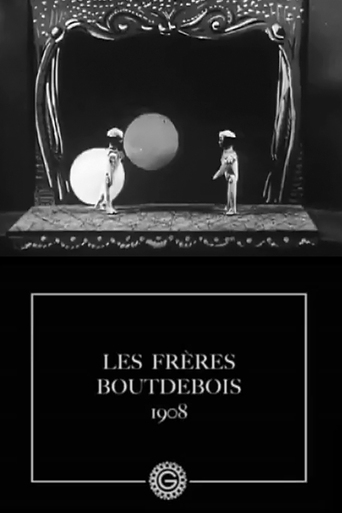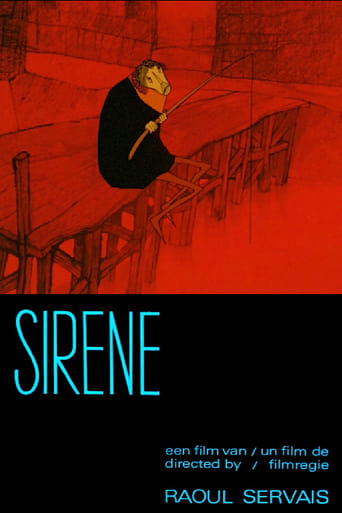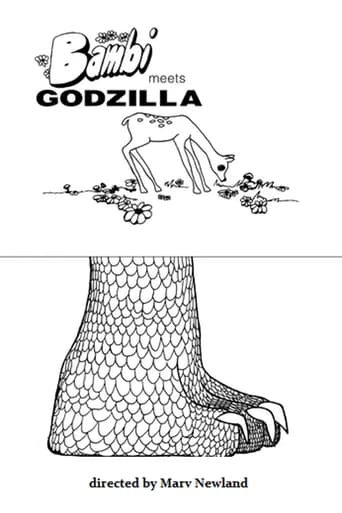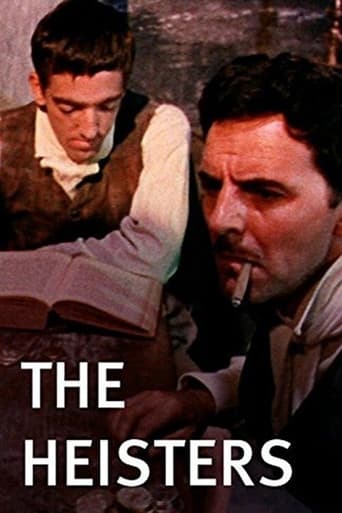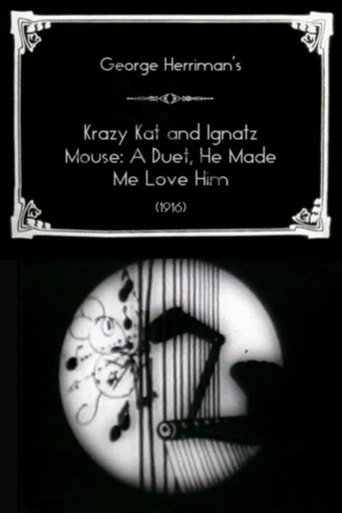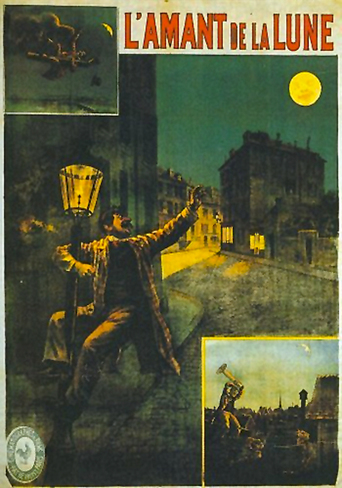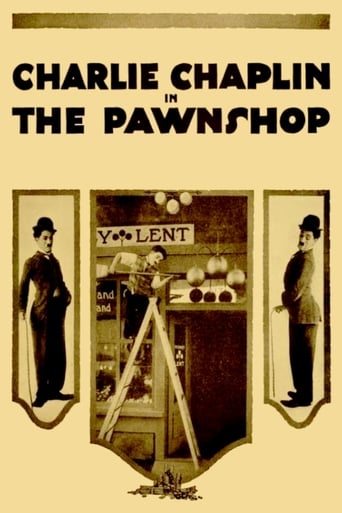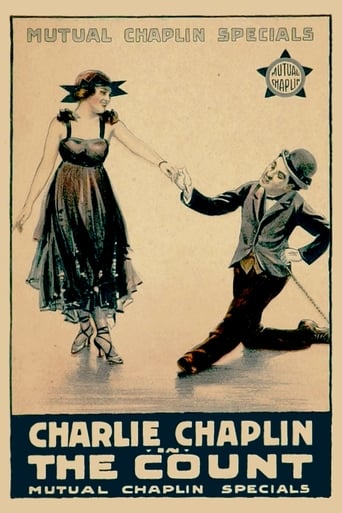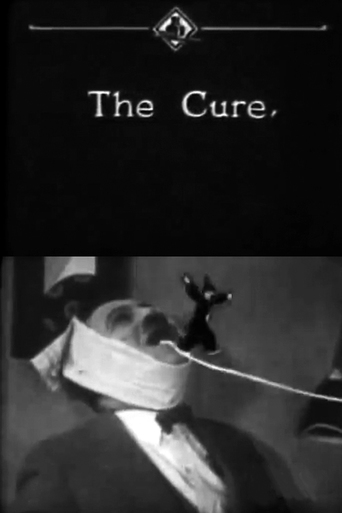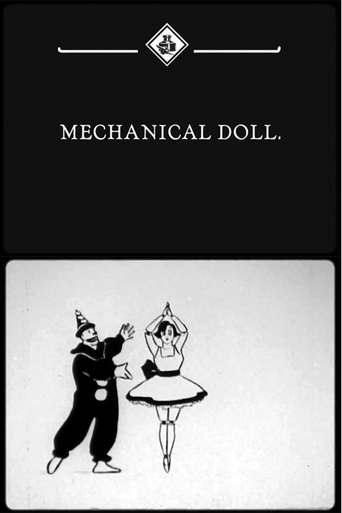The Mischief Makers (1957)
A group of young boys have a collective crush on Bernadette. As a result of this, they have an unreasoning jealousy of Gérard, and do everything they can to disrupt their relationship. When Gérard catches one of the young boys spying on them, he thrashes him severely. In retaliation, the children try to inspire Bernadette to doubt Gérard’s love.
Watch Trailer
Free Trial Channels
Cast


Similar titles
Reviews
One of the best movies of the year! Incredible from the beginning to the end.
Mostly, the movie is committed to the value of a good time.
It really made me laugh, but for some moments I was tearing up because I could relate so much.
Let me be very fair here, this is not the best movie in my opinion. But, this movie is fun, it has purpose and is very enjoyable to watch.
"Les mistons" is a movie by famous French director Francois Truffaut that was made over 55 years ago back when he was still fairly young an in the early stages of his career. Same can be said about the actors as well. For Bernadette Lafont, it was the very first acting role, while Blain acted before already. I guess she was mostly cast because she was also Blain's girlfriend/wife the year this was made and it was the beginning of a prolific career. She garnered final acclaim for her role as Paulette 3 years ago before her death in 2013.This black-and-white film is a typical example of Truffaut's early work. Really little happens, even for a running time of only 17 minutes. Basically the narrator is grown up now and tells us about when he was a boy and he and his pals constantly kept getting on the nerves of a young couple. They do pranks etc., but as not unusual for Truffaut there is a dark twist at the end which probably made this childhood memory so precious to the narrator. I personally prefer "Antoine et Colette", but this one here is not a bad watch either. Nicely atmospheric and really elevated by the ending.
A group of boys adore a young lady who cycles around the area in loose skirts. Being too young to love her they decide to hate her and make her break up with her boyfriend. They follow her around and usually wind up watching the couple as they play tennis.An early short from Truffaut, this is a bittersweet tale that is less structured than experienced. The film is essentially about a group of boys who tease a young woman because they don't know any other way of expressing their lust for her. It is a little heavy on noise and action but it is still good at heart. I would have liked a little bit more in the way of character rather than the slightly pretentious (French!) dialogue that was delivered - it didn't do enough to help me inside the characters or their feelings, but I suppose I had enough to be able to work it out for myself.The film is visually quite stylish and reasonably well directed; although some of the shots will appear quite clichéd now (girl on bike etc) but it is still effective. If anything the lack of dialogue was made worse by the noisy shouting etc that dominated the film; I would have preferred it to be a bit more controlled as I found the noise grating and made it difficult to concentrate. The cast are mainly young children but the woman in the central role manages to appear alluring and `normal' at the same time.Overall, this film has meaning and is enjoyable and interesting, but it hurts itself in some regards. It is worth seeing if you have more than a passing interest in Truffaut but it is overlong for it's material, dragging some scenes too long and lacks a stronger narrative.
in 1954, Francois Truffaut the young critic wrote a polemical essay in 'Cahiers de Cinema' called 'A Certain Tendency in French Cinema', which denounced contemporary mainstream cinema in France, with its inert notions of quality and prestige, and called for a cinema that would be responsive to experiment and outside (i.e. American) influence, which would be true to life in contemporary France, and which would facilitate the personal visions of the director, rather than borrowing the personal vision of a great writer, debasing it in the process.Three years later, and what was Francois Truffaut the young film-maker putting in place of the dread 'Cinema de papa'? Well, like it, he adapted a novel; and like it, he concentrated on its love story. Like it, a dubious romantic strain smothers any attempts to portray 'real life', never mind the processes that go into making that real life - his heroine has no personality or will of her own, and is associated with vague ideas of freedom, and traditional essences of the natural. Hey, I'm not the first to notice the disparity between Truffaut the revolutionary critic, and Truffaut the conservative film-maker. Originality for its own sake can often lead to the unwatchable. Where Truffaut decisively breaks with the cinema de papa is the freshness of his style, his exuberant love of film, and his schoolboy-like excitement at the sheer good fortune of being able to make a film, no matter how it turns out. These qualities retain their ability to enchant today, qualities which still make Truffaut's first three features THE most precious things in the whole of cinema for me, and which makes the subsequent slide into mediocrity and disillusionment so painful.The opening credits are bewitching, not because Truffaut films a beautiful, happy young woman in the sunny open air on a bicycle in the countryside, but because he manages to find a way of filming that beauty and youth and happiness and sunniness and openness that allows the viewer to share and experience it, that liberates a formal set-up with the potential to be weighed down with technical artifice, and approximate something like life, even if it is only a hope or dream of life.Truffaut's early films are so vital and moving because he achieves a poignant paradox: he shoots narratives about sadness, mistakes, failure, entrapment, despair, uncertainty, with the freest style, so that the pulse of the filming - unstable, improvisatory, immediate - is the pulse of life and emotion in all their bewildering varieties, an expression of feelings characters can't always express. 'Les Mistons' is a very sad story, looking forward to 'Shoot the Pianist' and 'Jules et Jim', with its doomed lovers, its pained nostalgia, its untracable crossing from one threshold to another, from youth to maturity, from love to indifference, from life to death. A motif - of the spontaneous lovers 'imprisoned' behind the 'bars' of trees etc. in the very nature that is supposed to be unrestrained, will be developed in 'Jules et Jim', while more 'studied' compositions, such as the sequence in the ancient arena, the complex framing and shifting, elusive notions of time (including a middle-aged narrator telling a story from his past we'd assumed was set in the present day) would likewise become more prominent in Truffaut. His ability to psychologically penetrate an undifferentiated group of boys, as in 'Les 400 Coups', is remarkable. But, as with those films, we are as likely to remember the gleeful cinematic facility, the offhand tributes to favourite masters (Lumiere, Cocteau, Vigo, Rossellini, and, especially, the Renoir of 'A Day in the Country'), or the gorgeous, melancholy score. Truffaut affirms cinema's power to capture life, but also its ultimate power to transcend it, to reverse its inevitable, brutal move towards decay, as in the lovely 'Orphee' allusion here that raises a boy playing dead to life. It's interesting that Truffaut, with his reputation for misogyny, in this early film questions the very processes of voyeurism, of defining and interpreting the female through gazing, that he would be later accused of indulging in.
One of the best moments in the great short comes when Truffaut pays homage to/rips off the Lumiere short L'arroseur Arrose, involving one of the "mistons" stepping on a gardener's hose, causing him to get squirted in the face. Truffaut is acknowledging the French film heritage he will have to respect and continue, and he seems to have done pretty nicely. The short was recently put on video with another wonderful short, Antoine & Colette, which continues the adventures of Antoine Doinel a few years after The 400 Blows, as he falls and fails in love. The tape/DVD is worth seeking out

